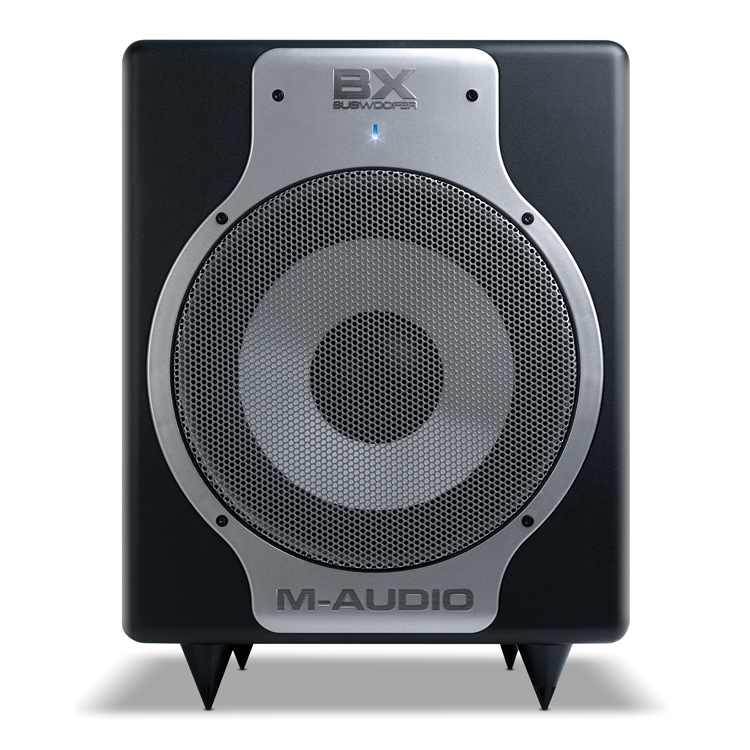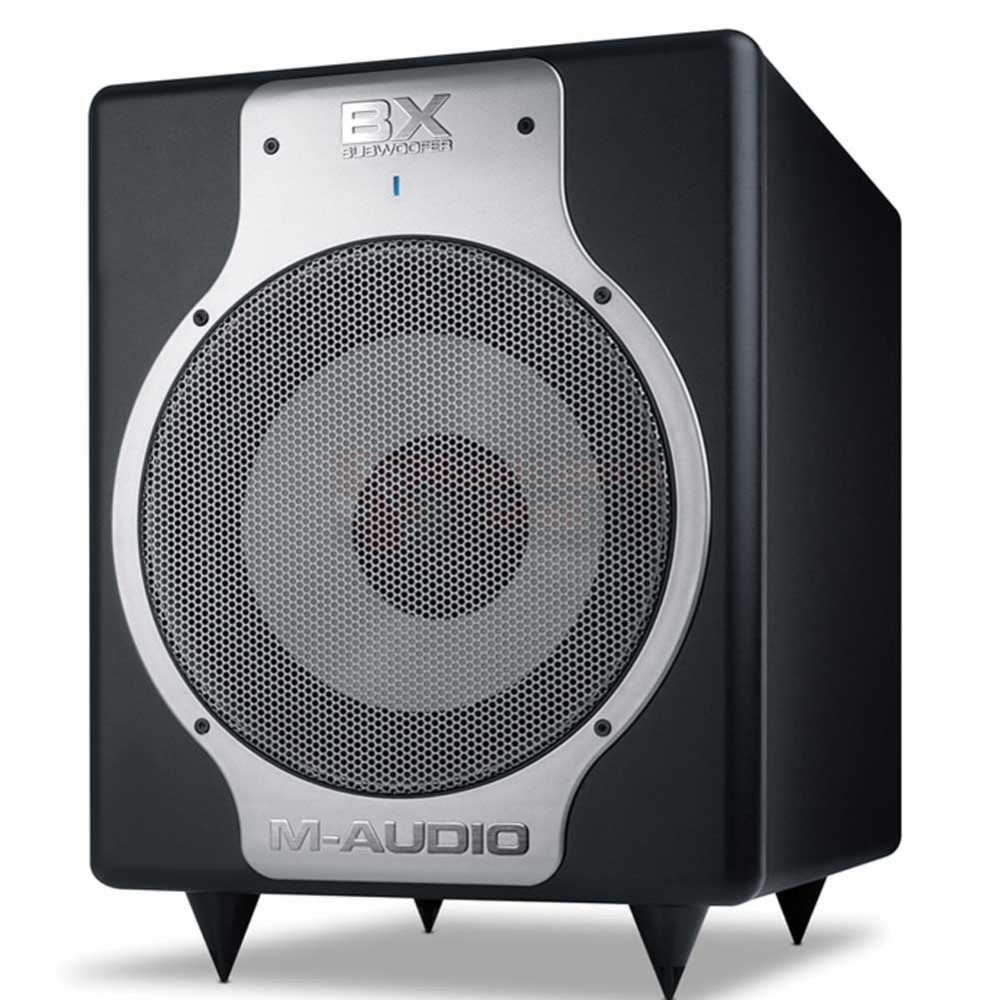The BX Subwoofer delivers deep, accurate bass response down to the lowest audible frequencies
Picking up where your left/right studio monitors leave off. Recording professionals know that hearing the extreme low frequencies in music is essential for making accurate mixing adjustments and producing the best recordings. The BX Subwoofer easily fulfills this requirement in a powerful and compact package that won’t take up too much of your valuable studio space.
The response what impress!
The BX Subwoofer’s frequency response extends down to 20Hz (-3 dB), the lowest audible frequency. It uses the highest-quality components for no-compromise performance: a 10” fiberglass/paper composite driver with an oversized magnet and high-temperature 2” voice coil, powered by a 240-watt Class AB all-discrete internal amplifier with a variable 50-200 Hz crossover. The cabinet is constructed of resonant-free ¾” Medium Density Fiberboard (MDF) with 1” front and rear baffles, and is heavily braced to eliminate the extraneous cabinet vibrations that can rob a subwoofer of its impact and articulation.
Engineered Especially for M-Audio Monitors
Designed for use with the M-Audio M3, BX Carbon and BX D2 series, the BX Subwoofer delivers the deep bass response necessary to optimize your music, film and multimedia projects. Most of today’s personal audio systems can easily reproduce very low bass frequencies, so it’s critical that your audio production environment allows you to monitor and adjust those frequencies while you’re mixing.
Active Crossover
The BX Subwoofer accepts two-channel stereo outputs from your mixer, audio interface or sound card. Your main L/R monitors connect to the subwoofer’s outputs. As stated above, the internal crossover network of the BX Subwoofer splits the signal at a user-chosen crossover frequency ( between 50-200Hz), routing everything below to the sub and everything above the crossover point to the main L/R monitor speakers.
The very steep 4th-order HP/LP filters (24 dB/oct) significantly improve your system’s overall fidelity because they limit the amount of “overlap” between the subwoofer and the satellite, thus minimizing phase-related frequency response cancellations and other crossover-induced anomalies. This assures that each component only has to deliver frequencies to which it is ideally suited: deep bass for the BX Subwoofer, and mid-bass/midrange/treble for your near-field monitors.
The variable crossover also makes it possible to tailor the bass response in your monitoring environment in order to achieve the most accurate acoustic response—in both studio and home theater applications. For example, to minimize “localizing” on the sub (detecting the origin of the sub’s sound by ear, which destroys any semblance of a believable sonic image), you can choose a higher crossover frequency if the subwoofer is reasonably close to the L/R monitors, or a very low crossover frequency if the sub is located far away from the L/R monitors. Sound becomes more “localizable” as frequency increases, while very low bass is non-directional. Therefore, you can see how a widely-variable 50-200 Hz crossover—like in the BX Subwoofer—really opens up your system placement options.
10” long-excursion low-frequency driver with oversized magnet
240-watt Class A/B amplifier with all-discrete transistor design
Stereo inputs: XLR; 1/4" balanced/unbalanced; RCA
Stereo satellite outputs: XLR; 1/4" balanced/unbalanced
Internal crossover offers variable frequency
Included subwoofer bypass footswitch
High-density bass reflex cabinet with internal bracing
Removable grill and detachable feet
180 phase reverse switch



